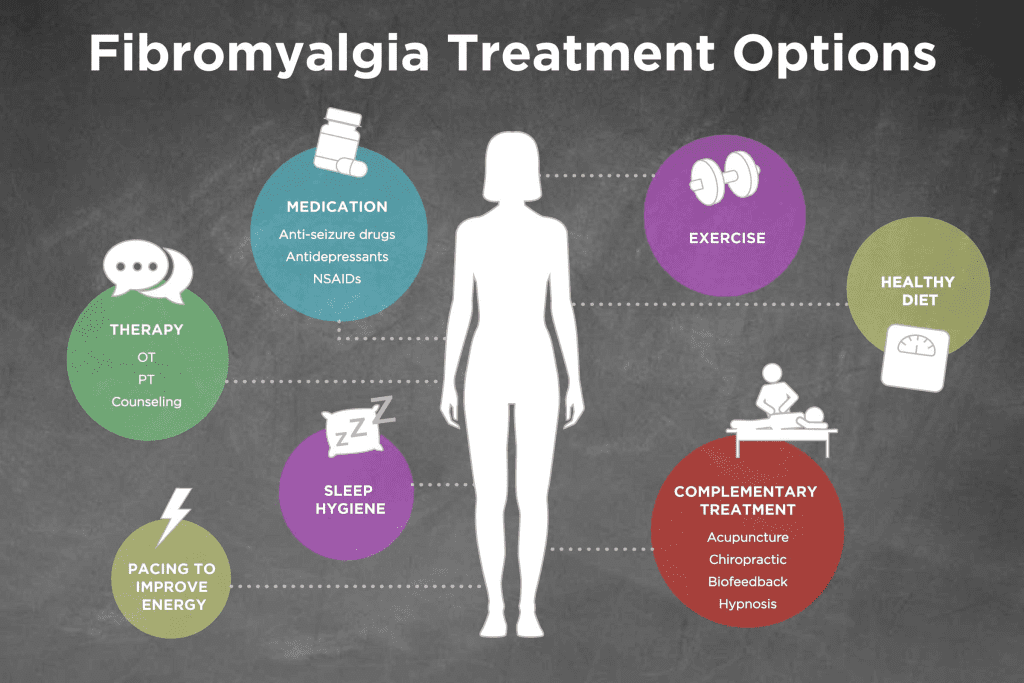Fibromyalgia is one of those invisible conditions that can quietly take over someone’s entire life. From the outside, someone may appear completely fine. But on the inside? It’s a daily grind filled with chronic pain, exhaustion, and foggy thinking. Often misunderstood, frequently misdiagnosed, and sometimes dismissed altogether, fibromyalgia affects millions of people worldwide.
So what is this complex condition really about? Why is it so hard to diagnose? And more importantly, how can someone living with it find lasting relief? Let’s break it all down and uncover the truth behind this chronic condition.
Understanding Fibromyalgia: More Than Just Pain

At its core, fibromyalgia is a chronic disorder known for causing widespread musculoskeletal pain, extreme fatigue, and heightened sensitivity to pressure. But the condition goes far beyond aching muscles. It actually affects how your brain and spinal cord process pain signals, meaning the brain exaggerates the pain you feel.
That’s why it’s sometimes referred to as a “pain amplification syndrome.” But it’s not just the physical side—fibromyalgia can wreak havoc on your mental and emotional well-being, too. It brings along a package of symptoms like anxiety, depression, sleep disturbances, and cognitive difficulties that make everyday tasks feel like mountains.
Recognizing the Common Symptoms of Fibromyalgia
If you’re wondering whether your symptoms could be linked to fibromyalgia, here’s what people typically experience:
Widespread Pain
The most defining feature—persistent, dull pain that seems to affect every part of the body and lasts for months.
Morning Stiffness
Your body feels locked and sore after sleeping or staying in one position too long.
Fibro Fog
A mental cloudiness that causes problems with focus, memory, and concentration.
Exhaustion
No matter how much you sleep, it never seems to be enough. Fatigue hits hard and lingers.
Video : The Hidden Struggle of Fibromyalgia Unveiled by Doctors
Sleep Problems
Difficulty falling asleep or waking up frequently during the night. Even a full night’s sleep doesn’t bring rest.
Tingling and Numbness
That pins-and-needles sensation in the hands or feet without any clear reason.
Headaches
Recurring tension-type headaches or migraines are very common.
Digestive Distress
Symptoms of IBS—bloating, cramping, constipation, or diarrhea—often go hand in hand with fibromyalgia.
Sensitivity to Stimuli
Light, noise, touch, and even temperature changes can feel painfully exaggerated.
These symptoms often fluctuate in severity and can get worse during times of stress, lack of sleep, or physical overexertion.
What Causes Fibromyalgia?
There’s no single cause for fibromyalgia. It’s typically a perfect storm of multiple factors. Here are the most likely culprits:
Genetics
If someone in your family has fibromyalgia, you’re more likely to develop it too.
Infections or Illnesses
Viral infections, bacterial diseases, or even other chronic illnesses can trigger the onset.
Physical or Emotional Trauma
Car accidents, surgeries, or emotional stress from things like grief or PTSD can spark symptoms.
Nervous System Abnormalities
Some people have heightened sensitivity to pain signals because their nervous system is in constant “alert” mode.
Chronic Stress
Prolonged stress affects hormone levels and brain chemistry, which can contribute to pain perception and fatigue.
It’s important to remember that fibromyalgia is not “in your head.” It’s a real condition that affects the entire body.
How to Manage Fibromyalgia: Real-World Treatments That Work

Living with fibromyalgia means learning how to manage the symptoms rather than expecting a complete cure. Here are some of the most effective, proven strategies:
Low-Impact Exercise
Gentle movement like walking, stretching, yoga, or swimming helps ease pain and fatigue without overloading your body.
Therapeutic Massage
Massage can help reduce muscle stiffness, improve circulation, and promote relaxation.
Acupuncture
This ancient method is gaining modern support. Many patients report pain relief and improved well-being.
Cognitive Behavioral Therapy (CBT)
Talking to a therapist can help you reframe negative thought patterns that intensify pain and emotional distress.
Sleep Hygiene
Getting good sleep is essential. Go to bed and wake up at the same time every day, create a restful sleep environment, and avoid screens before bedtime.
Medications
Doctors may prescribe pain relievers, antidepressants, or nerve-related drugs like gabapentin or pregabalin to manage symptoms.
Diet and Nutrition
Some people find that cutting out processed foods, sugar, caffeine, and gluten can help reduce inflammation and flare-ups.
Mind-Body Techniques
Meditation, mindfulness, deep breathing, and even art therapy can help lower stress and improve your ability to cope.
Support Systems
Join a support group, whether in person or online. Talking to others who understand what you’re going through makes a big difference.
A Realistic Path to Healing
There’s no quick fix when it comes to fibromyalgia—but there is hope. Healing is possible when you combine medical treatment, emotional support, lifestyle changes, and a bit of patience.
The key is consistency. Small daily habits—like gentle stretching, eating whole foods, getting outside for sunlight, and managing your stress—can slowly create real improvements over time.
Video : Fibromyalgia: How to Manage Chronic Pain
You’re Not Alone in This
Living with fibromyalgia can feel isolating, especially when people around you don’t fully understand what you’re going through. But remember, you are not alone. There’s a growing community of people out there dealing with the same silent struggle—and support is available.
Keep advocating for yourself. Keep seeking knowledge. And most importantly, keep believing that better days are ahead.
Conclusion: Embrace the Journey, Don’t Let It Define You
Fibromyalgia is tough—but so are you. With awareness, support, and the right tools, you can regain control over your life. This condition might shape part of your story, but it doesn’t get to write the ending. You do.
Let this be your reminder: You are strong, capable, and deserving of a life full of comfort, joy, and peace—no matter what fibromyalgia throws your way.


